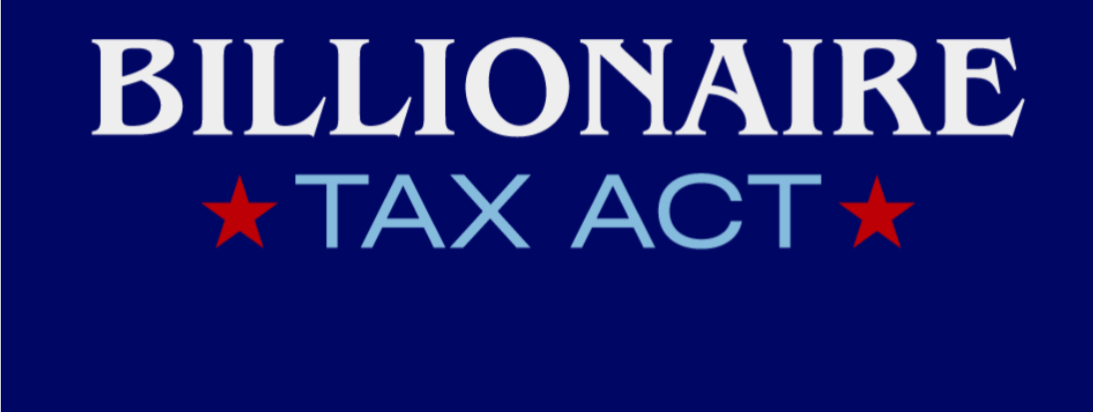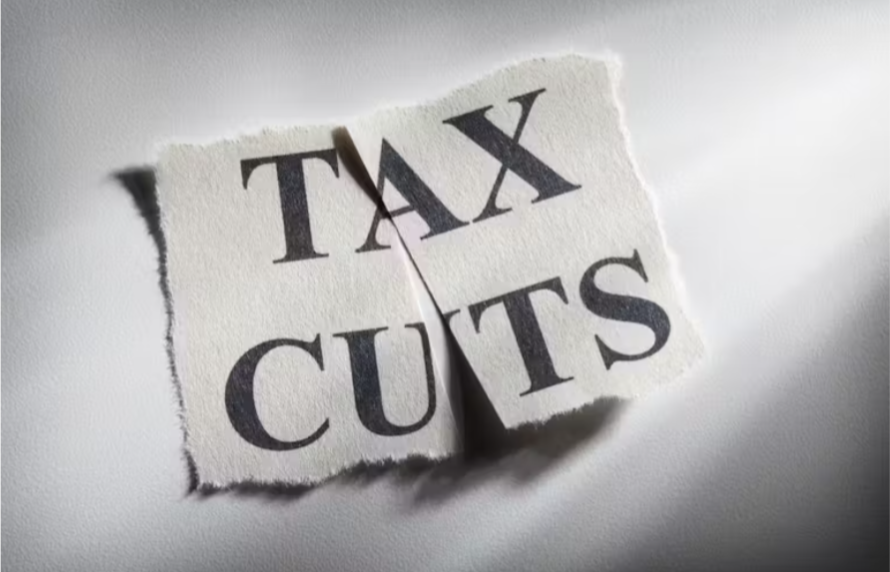(ThyBlackMan.com) The stock market has been mixed lately as a result of the Federal Reserve Bank’s (Fed) announcement that it will reduce its bond buying activities, which started December. Because tapering or reducing the purchase of government debt at very low interest rates is not good for stocks, and will cause the market to decline overtime, the Fed sugar coated its announcement of an exit from the bond market to ease market concerns.
It gave market investors an organized plan of exiting the bond market over the next 12 months, and sugar coated the exit by saying if the unemployment rates start rising again and financial markets get wobbly, the Fed will re-enter the credit markets and initiate another round of government bond purchases to keep interest rate low. The sugar coating extended to the Fed emphasizing in its announcement that it is committed to keeping interest rates close to zero per cent for the foreseeable future. Investors thought this was good news. Primary, among the reasons they thought this was good news is that cheap money will be hanging around for at least the next 2 to 3 months, maybe a little longer.
The stock market over these last few months rose primarily due to the availability of cheap money. Cheap money results when the Federal Reserve Bank which is the nation’s central banker keeps interest rates artificially low. Artificially low interest rates allows borrowers to borrow money at very low interest rates. Borrowers are able to finance the purchases of automobiles, appliances, and other home related goods and services at very low interest rates, thus causing businesses associated with those products to expand sales. Among industries seeing their profit margins improve handsomely are the auto manufactures and the home improvement stores such as Home Depot and Lowe’s.
those products to expand sales. Among industries seeing their profit margins improve handsomely are the auto manufactures and the home improvement stores such as Home Depot and Lowe’s.
While many other industries benefit from low interest rates, there is an industry non-investors have little knowledge of that benefits richly and contributes greatly to stock price increases. Stock market investors who qualify are allowed to borrow money to purchase stock. Almost anyone who has an account with a brokerage or investment firm can open what is called a margin account. With this margin account, based on the amount of assets, meaning cash and securities in the account, investors are able to borrow money to purchase stock.
These investors can be investment groups, both large and small or a single investor. Obviously, this is a real advantage, for as the stock market rises, you can purchase more and more stocks, making even more and more money, on borrowed money. Due to low interest rates, it is logical to assume, investors took advantage of this option, thus creating more stock purchases, thus driving the stock market higher.
However, in the last two months we have seen, due to the Federal Reserve Bank’s (Fed) qualitative easing program (QE), improvements in the labor markets. In October, due to easy money (cheap money), the national economy created 204,000 jobs and in November, it created an additional 203,000 jobs. The national unemployment rate dropped to 7.0% in November from 7.3% in October. ( https://thyblackman.com/2013/06/24/a-7-national-unemployment-rate-is-not-good-for-blacks/ ). The national economy needs to create on a daily or continuous basis 250,000 to 300,000 jobs monthly to get back to being considered healthy. Nevertheless, market investors see a trend beginning to develop. They see the Fed’s cheap money program working!
This concerns investors. They know the Fed has one eye on the inflation rate as it floods the market with dollars and another eye on the exit door if the inflation rate begins to rise. Generating too many dollars can cause inflation. Therefore the Fed wants to close the money pipeline. It then wants to make a well organized exit from the bond market before inflation becomes a problem, hence the 12 month exit plan. Investors smelled this exit coming when they saw the unemployment results. However, the Fed in saying it will not raise rates while it exits the bond market allayed investors immediate concerns.
But investors know unless something replaces the bond buying activities of the Fed like a national job creation plan, unemployment will begin to rise. This was in part evidenced by the creation of only 74,000 jobs in December. If low job creation numbers continue, the low unemployment rates, such as the national rate which fell to 6.7% in December becomes a red herring. You see, the QE program is not a long-term job creation plan and this is what the public needs to focus on, rather than the unemployment rate. As the easy money(cheap money) dries up, its influence should recede along with its withdrawal. How soon we see the reduction in influence, such as no more low interest rated borrowing, is really the big unknown! The country has become accustomed to easy (cheap) money.
But, the price of easy money if it gets out of control is inflation. And the remedy for inflation is higher interest rates. Nevertheless, the QE program benefited those who were well or properly positioned to take advantage of cheap money like consumers who needed to finance the purchase of a new car, new appliances, home improvements, refinance home mortgages, stock speculators, real estate speculators who have been buying abandon properties in large blocks and corporations who were able to refinance their operations at very low interest rates. Easy money is not a long-term means to create jobs. When you focus on long-term job creation, the most meaningful ways of achieving this goal is not through easy money, but calculative strategies such as:
1) businesses on a wide basis expanding spending,
2) the federal government finding a way to increase revenues directly to the consumers on a long-term basis,
or
3) the federal government increasing spending on long term projects, such as repairing the infrastructure, thus the need for deficit spending due to the federal government being broke.
What is a harbinger of tough times ahead is that businesses have not shown any inclination to increase spending. As a matter of fact ,they have done just the opposite. In this low interest rate environment, they have chosen to shore up their balance sheets through refinancing debt. They have used the low interest rates to finance increased stock prices through stock buy-back programs.
Meanwhile, the federal government is stymied by ideologues who refuse to pass any meaningful infrastructure spending legislation. It remains to be seen if the Davis Deficit Neutral Job Creation program ( http://www.jobcreationnow.com ) which creates a path to long term consumer spending which is the solution, can rise out of obscurity and get mainstream media attention in the coming months. If the Fed stays committed to ending its program of cheap money, this will inevitably lead to low monthly job creation numbers. Low monthly job creation numbers means tough times ahead for everyone, as the unemployment rate will invariably rise again. And so it goes…
Staff Writer; James Davis
More information about JD and his Deficit Neutral Stimulus Plan Can be founded at http://www.sslumpsum.com.
One may also pick up this “brother” latest book which is entitled; Hey…God’s Talking To You The Study Book.

















Rich, I want to thank you for reading my piece. I spend a lot of time on putting these pieces together and its always appreciated when someone takes the time to comment. THANK YOU!
Let’s get to the bottom of the issue you raised;
Is qualitative easing the correct term to use in regard to what the Federal Reserve Bank (Fed) is doing or as you pointed out Rich, quantitative easing? The two terms by the way are not interchangeable. Therefore it has to be one or the other.
Qualitative easing is a government policy that is designed to mitigate risk through central bank purchases of privately held risky assets and their replacement by government debt (means Fed is printing the money), with a return that is guaranteed by the taxpayer. Policies of this kind have recently been carried out by national central banks, backed by implicit guarantees from national treasuries.
When we examine the current policy of the Fed, qualitative easing appears to be proper term in describing their operation. You see, qualitative easing is focused on the type of assets the Fed is buying in order to keep interest low and provide liquidity. Let’s break this down a little further. I went the Federal Reserve website and ask the question what are Fed’s asset purchases? Here is the answer:
“In December 2008, as evidence of a dramatic slowdown in the U.S. economy mounted, the Federal Reserve reduced its target for the federal funds rate–the interest rate that depository institutions(banks) charge each other for borrowing funds overnight–to nearly zero, in order to provide stimulus to household and business spending and so support economic recovery. With the funds rate near its effective lower bound, leaving little scope for further reductions, in late 2008 the Federal Reserve began a series of large-scale asset purchases (LSAPs). In conducting LSAPs, the Fed purchases longer-term securities issued by the U.S. government and longer-term securities issued or guaranteed by government-sponsored agencies such as Fannie Mae or Freddie Mac. The Fed purchases the securities in the private market through a competitive process; that is, the Fed does not purchase government securities directly from the U.S. Treasury. The Fed’s purchases reduce the available supply of securities in the market, leading to an increase in the prices of those securities and a reduction in their yields. Lower yields on mortgage-backed securities mean lower mortgage rates as well. Moreover, private investors respond to lower yields on U.S. Treasury securities and agency-guaranteed mortgage-backed securities by seeking to acquire assets with higher yields–assets such as corporate bonds and other privately issued securities. Investors’ purchases should raise the prices of those securities and reduce their yields. Thus, the overall effect of the Fed’s LSAPs is to put downward pressure on yields of a wide range of longer-term securities, support mortgage markets, and promote a stronger economic recovery.
Let me explain further what the operation of buying “longer term securities” mean in term of Fannie Mae and Freddie Mac, and you will get where I am heading with qualitative easing. You see as I indicated it is quality of the securities the Fed is buying which gives the operation the name “qualitative easing.” The Fed is buying mortgage backed securities which are “home loans.” When you purchase a $200,000.00 house @ a 5.0% interest rate, and put down 10% on that house loan which is $20,000.00, the bank through which you financed that house holds mortgage loan of $180,000.00 dollars on which you are going to make monthly payments for the next 20 to 30 years. Well what if the bank you are doing business makes 100 of the same type loans the day you got your loan. That would tie up $18,000,000 million dollars of the bank’s deposits or money it had in its safe. Obviously, the bank in an effort to stay liquid, that is have money available for the next 100 customers who come through the front door and want to buy a home, it has to find a way to turn your loan and the other 99 customers’ loan into cash so it can have money available to loan to those new 100 customers. Fannie Mae and Freddie Mac are government agencies that exchange cash for the loans. The bank will receive $18,000,000.00 millions from one of these agencies and the agencies now will move the loan to their balance sheet. When you send your monthly payment into the bank, the bank will forward your payment to that whichever government agency is holding your loan. What does the bank get out of it. It charges 1% interest for being the go between you and the government agencies. The government agencies now are holding a loan that pays a 4.0% interest rate rather than the original 5.0%, because the bank is taking down 1.0% interest as a fee for finding the loan. Put another way, the bank makes $10.00 per each thousand dollar of your loan and the government financing agency is making $40.00 per each thousand dollars of your loan on an annual basis. The government agencies take the $18,000,000.00 in these 100 housing loans and break them up into 1,800 $10,000.00 dollar bonds with each $10,000.00 dollar bond paying say 4.0% interest. The agencies for its effort may get .05% interest or $5.00 per thousand on an annual basis for a processing fee. They then sell the $10,000.00 bond which one part of 1,800 to anyone who is looking to make an investment $10,000.00 for 20 or 30 years and get paid 3.5% on their investment on annual basis or $35.00 per thousand on an annual basis. So when the bank collects your mortgage payment, it sends it to the government agencies after collecting its fee and government agency send your payment via paying interest on $10,000.00 to the investors who have purchased a piece of your mortgage. Because these $10,000.00 mortgage backed bonds are traded in an open market, that is, some investors may not want to hold the $10,000.00 bonds for the entire 20 to 30 years to maturity, or full time they will be paying interest, the Fed comes into this open market and “purchases the securities in the private ( open market because its not controlled by the government) market through a competitive process.” In other words the Fed says it will buy from sellers, basically all the bonds they want to get rid of by bidding for them. Because of the “quantity” its purchases $85 billion dollars a month), it “reduces the availability of these $10,000.00 mortgage backed bonds.” Now, what happens to something when there is less of them. They go up in price. So if I am an investor and I am looking to purchase these $10,000.00 bonds, I will have to pay more than $10,000.00 to acquire them, right? I will have to pay say $10,200.00 for a bond that when it was brand new cost $10,000.00 and paid 3.5% interest or $35.00 per a thousand dollars on an annual basis. When I am forced to pay $10,2000.00 because the Fed is buying up all the supply, I am as a result will not be receiving 3.5% interest or $35.00 per thousand if I hold the bond to maturity because I paid more for it. I paid $200.00 more for each bond which originally cost $10,000.00. This is called driving the yield down on the bond. So when you mathematically compute what that bond is really paying in interest at 10,200.00 it could be say 3.00% because of the additional $200.00 increase I paid. This is how the Fed keeps mortgage interest rates low. It crowds out everyone and makes them spend more money and get less in interest income. Most investors if they can from a regulatory stand point will go to the corporate bond market or to the stock to get more for their money. Thus, the Fed achieves two objectives, it keeps interest rates low and forces investors who can afford to do so take more risk. However, there are investors who can only buy guaranteed bonds, like some pension funds, investors who are investing for municipalities. They are forced to purchase the low interest bonds.
A simple way to put this is, quantitative easing is focused on the amount of assets or bonds purchased and not so much on the quality of bonds purchased like what the Fed is doing. Qualitative easing is focused on the type of assets bought. In other words here is what I am saying, The Fed could have easily gone into bond market and in an effort to achieve its objective of keeping interest rates low brought any type of bond and may have failed. Obviously the quality of the Fed’s purchases matter. Therefore I say I am correct in saying the Fed’s operation is qualitative easing because it matters what assets the Fed purchases to achieve it objective. It is not just purchasing quantity to achieve its objective. Here is what I suggest Rich, go to the Federal Reserve Bank website itself and in its query box, punch in the two terms, qualitative easing and quantitative easing. If after reading what the Fed says itself about these operations, you think I am still incorrect in calling “qualitative easing,” please advise me and tell me on what basis you make you make that call. And so it goes…. http://www.jobcreationnow.com
Yo, James, it’s QUANTITATIVE easing. How is anyone supposed to take this seriously when you can’t even name the Feds program?
Why would black men or anyone else have tough times? You voted for Obama. It’s OK. He’s black, because he was born in Africa to a Muslim Father and a Communist Mother. What could go wrong black man?
Black Male Unemployment is today at the Highest Level in the History of the United States. You can thank your 95% for that. You’ve earned it.